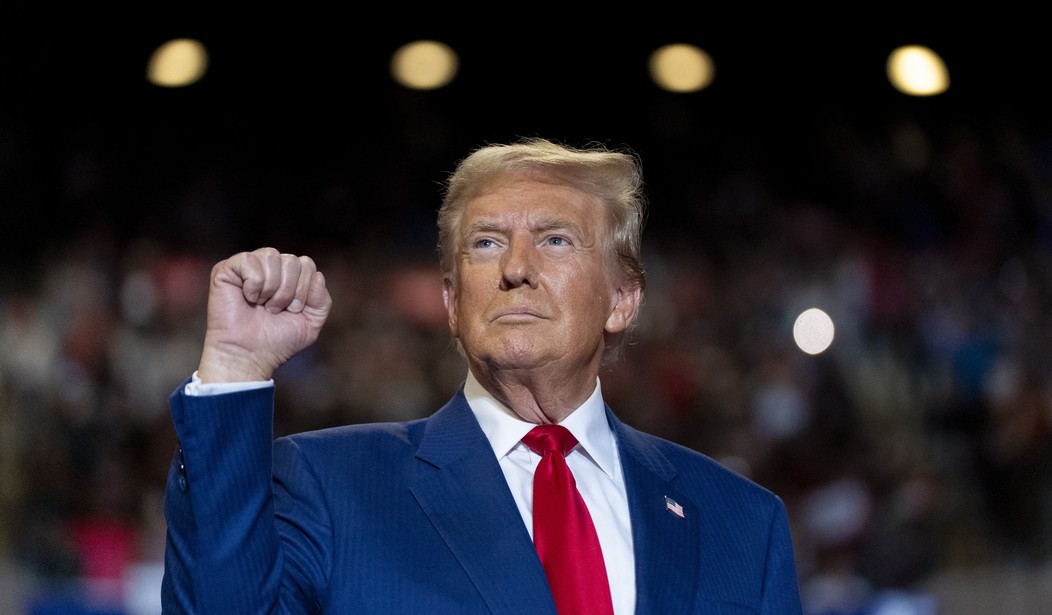Regardless of what happens today, Donald Trump has already secured a political victory that will reshape America for decades. Through sheer force of personality, Trump has achieved something few leaders accomplish: a transformation of both his own party and his opposition, with implications extending far beyond his time in office.
When Trump assumed the Republican mantle in 2016, the party was a shadow of its current self—barely distinguishable from the Democrats on issues like immigration, trade, and foreign policy. At that time, Pew Research Center studies indicated that a mere 33 percent of Republicans expressed confidence in the party’s leaders. Today, however, the Republican Party is unmistakably Trump’s creation: a multi-racial, multi-ethnic coalition drawing in working and middle-class Americans. Census data shows that over 28 percent of Republicans identify as non-white, up from 22 percent in 2016, and the party’s working-class voter base has expanded by 15 percent. Across governorships, state legislatures, and congressional leadership, “Trump Republicans” now overwhelmingly outnumber moderates, securing his populist, America-first vision.
But Trump’s influence didn’t stop at redefining the GOP; he reshaped the Democratic Party, pushing it toward a reckoning with its own priorities. Joe Biden, long the symbol of Democratic politics, faced a formidable challenge in his 2024 re-election bid in large part due to Trump’s determination to remain as the leader of the Republican Party.
Despite Biden’s 2020 victory and his party’s confidence in him for most of the 2024 election cycle, Trump’s relentless campaigning became a drag on Biden’s re-election hopes. By early 2024, Biden’s approval ratings had dropped below 35 percent, with Gallup data showing an unprecedented disapproval rate for his handling of inflation and border security—deemed “extremely concerning” by 78 percent of independents.
Recommended
It's remarkable to consider that Donald Trump ended Joe Biden’s political career before Joe Biden could end Donald Trump’s.
But Trump’s victory wasn’t just against Biden personally; it was a rejection of the Democratic platform itself. According to surveys from the Kaiser Family Foundation, over 60 percent of Americans are concerned about ambitious climate policies, while nearly 70 percent are uneasy with open-border policies—long hallmarks of the Democratic Party’s approach to national elections.
The Republican Party Trump inherited was led by people who wanted to move in the Democrats’ direction on both climate change and immigration, but because of Trump, it’s now the Democratic Party that is moving in the direction of Republican rank-and-file voters on both issues.
For proof, look at how Kamala Harris has been forced to distance herself from the administration she helped lead and disavow many of her lifelong political positions. If Kamala Harris wins, she will have done so by retreating from progressive stances on immigration, environmental policy, and economic reform, opting instead for a centrist approach to align with the political landscape Trump has reshaped.
Trump didn’t just redefine party politics—he shattered the traditional norms of political influence. He took on massive corporations, paving the way for other conservatives, like Ron DeSantis, to challenge industry giants like Disney. DeSantis’ high-profile clash with Disney over self-governance and corporate tax incentives signaled that the GOP was no longer afraid to confront even the largest companies when public interests were at stake.
DeSantis was reelected by a historic margin in Florida, and Disney was forced to settle their dispute with any substantive concessions from DeSantis. The clash with Disney highlighted a new, broader GOP willingness to stand up against corporate overreach—itself a rejection of the post-Reagan Republican Party before Trump.
Bill Clinton once advised politicians, “Never pick a fight with people who buy ink by the barrel,” yet Trump shattered this axiom too. Trump relentlessly confronted the media establishment head-on, exposing what he saw as hypocrisy and corruption, and accelerating a steep decline in public trust toward legacy media
A 2023 Gallup poll found that trust in mainstream media dropped to an all-time low, with only 32 percent of Americans expressing confidence in outlets like CNN or The Washington Post. This erosion in trust paved the way for the rise of citizen journalism on platforms like X (formerly Twitter) and led to an exodus from traditional outlets, including record-breaking subscription losses for The Washington Post. Trump simultaneously eroded trust in mainstream outlets and rejected their interview requests while boasting the importance of emerging outlets and new media streaming and podcast stars.
Trump’s relentless critique catalyzed a new era of information, where citizen journalists and alternative media voices compete on equal footing with once-unassailable media giants. The more the mainstream media attacked Trump and became consumed with him, the more they played into his hands.
In essence, Donald Trump became the rock that the legacy media broke itself against.
Even as Trump reshapes the present, he has laid a foundation for the future. By rejecting the conventional wisdom that he needed to select a moderate like Nikki Haley to balance his ticket and instead selecting J.D. Vance as his running mate, Trump ensured a line of ideological succession that will extend his influence. Studies from the American Enterprise Institute show that voters under 40 are increasingly drawn to Vance’s populist brand of conservatism, indicating the enduring appeal of Trump’s movement among younger generations. Vance is no mere placeholder; he is an articulate, intellectual, and dynamic voice who will build on Trump’s America-first foundation and ensure the Republican Party’s continuity in its populist direction.
With Trump’s influence, the Republican Party will never return to the corporate-friendly, culturally moderate positions of the late 20th century. A 2023 Pew Research Center report noted that “populist conservatism”—a mix of nationalism, economic pragmatism, and social conservatism—is now the dominant ideology within the GOP. Regardless of what happens on Election Day, Trump’s impact is undeniable, and the Republican Party’s future trajectory has been indelibly set, marking a new era for conservatism in America.
One of Kamala Harris’ campaign slogans is “we are never going back.” She may not realize just how accurately she's describing the political landscape Donald Trump built.

























Join the conversation as a VIP Member